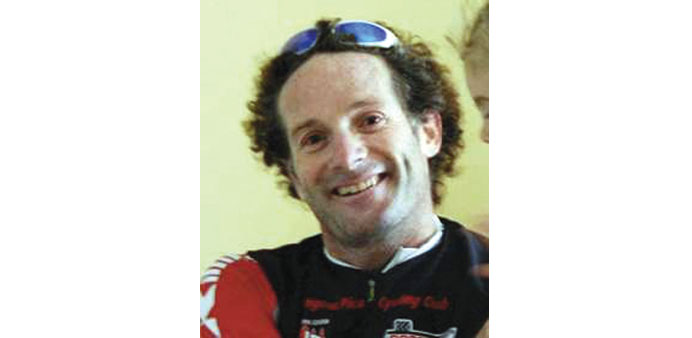By Amena Bakr
Doha/Reuters
|
|
Qatar is working to help free four Americans held hostage in Syria by various armed groups, a Gulf source familiar with the matter has said.
On Sunday, Qatar’s diplomacy had helped free an American journalist held since 2012.
The source declined to name the four or provide details, and Reuters could not independently verify the assertion, but his account was broadly supported by other sources.
The reported initiative by Qatar coincides with an effort by the state to rebut allegations by some that it supports the most anti-Western militant armed groups in Iraq and Syria.
Qatar, which does back some factions fighting the regime of Syrian President Bashar al-Assad, has mediated the release of foreign and Syrian captives on several occasions in the course of Syria’s three-year-old civil war.
Its latest foray into hostage diplomacy brought Sunday’s release of Peter Theo Curtis, an American held for nearly two years by al-Nusra Front.
“Four other Americans who have gone missing in Syria have now been located, and Qatar is working to free them,” the Gulf source told Reuters on condition of anonymity. He said the hostages were being held by “various groups” but declined to give details.
Qatar’s Foreign Ministry declined to comment.
A Doha-based source close to the Qatari government said without elaborating that Washington was working with Qatar to try to free a number of US hostages in Syria.
A rebel commander in Syria reached by Skype from Beirut told Reuters that Qatar was continuously trying to secure the release of captives of all nationalities.
“Qatar has good connection here on the ground with various groups,” he said. “Freeing hostages is their priority, and whenever there is a chance, they help. They use these connections to release hostages. Right now they are working on several issues regarding hostages.”
A Syrian opposition official in Doha said Qatar was trying to secure the release of a number of hostages across Syria, but did not say how many.
“Qatar has very good connections with brigades inside Syria. That’s why their attempts have been successful, and more efforts are being made to free a number of hostages across the country,” said the official, who asked not to be identified.
In Washington, a US State Department spokesperson said the US government over the past two years had reached out to over two dozen countries asking for help from anyone who could help secure the release of American citizens held in Syria.
News of Curtis’s release emerged just days after Islamic State, a splinter Al Qaeda group that operates in Syria and Iraq, posted a video on the Internet showing one of its fighters beheading American journalist James Foley, who was kidnapped in Syria in 2012.
Qatar has, for years, played peace broker in disputes from Somalia to Lebanon.
Qatar this week argued its aims in the region were peaceful and humanitarian, issuing a statement condemning Foley’s “barbaric” murder.
“Qatar does not support extremist groups, including ISIS, in any way. We are repelled by their views, their violent methods and their ambitions,” HE the Foreign Minister Dr Khalid bin Mohamed al-Attiyah said in a statement released in London earlier this week.
Al-Attiyah said Qatar’s goal was to do all it could to see peace and justice across the region and called for collective action to end the violence in Iraq and Syria.
Al-Attiyah said earlier this year his country’s mediation had secured the release in March of 13 Greek Orthodox nuns after more than three months of being held by Islamist fighters. The British-based Syrian Observatory for Human Rights identified the rebels who took the nuns as the Nusra Front.
Before that, Qatar helped win the release of 11 Lebanese Shias in October 2013 after 17 months in captivity in Syria.
While the details of how Qatar managed to get Curtis free are yet to become clear, the Gulf source said Qatari intelligence acting at the request of the US had obtained video proof that Curtis was alive, something that had allowed negotiations for his release to begin.
“The kidnappers had asked for ransom, but that’s not something Qatar gets involved in,” the source said.
The source said Qatar had been willing to try to help free hostages held by various Islamist groups, but found it hard to work with Islamic State, whose militants have taken responsibility for killing Foley.

